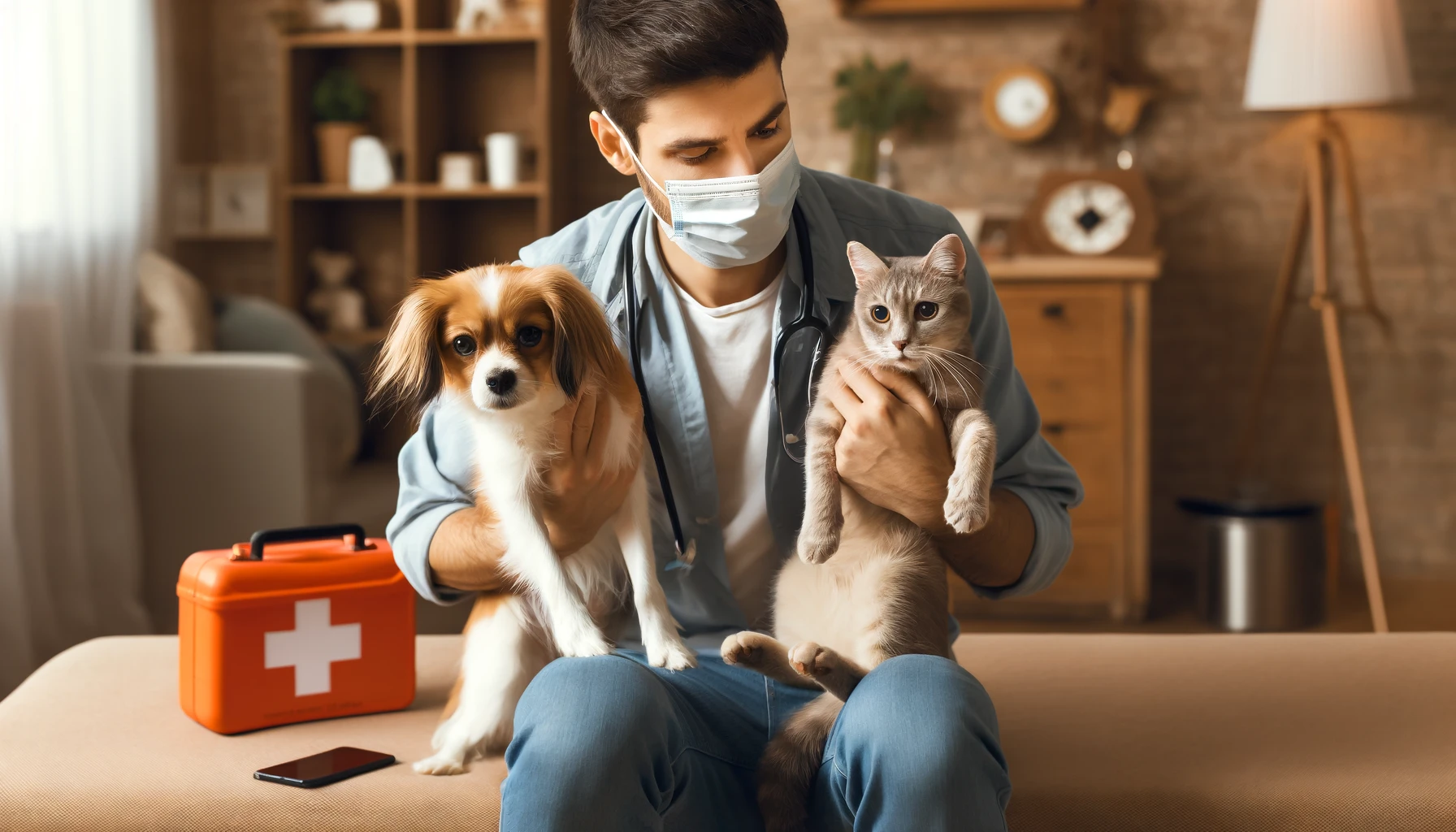As pet owners, we always want our furry friends to be happy and healthy. However, pets can’t tell us when they’re feeling unwell, so it’s up to us to recognize the warning signs. Some health issues can be treated at home, but others require immediate veterinary attention. Ignoring these signs could put your pet’s life at risk.
In this article, we’ll cover 10 urgent symptoms that mean your pet needs to see a vet as soon as possible.
1. Loss of Appetite or Refusal to Eat
Pets love their meals, so if your dog or cat suddenly refuses to eat, it’s a sign that something is wrong. While a temporary lack of appetite may not always be serious, prolonged food refusal (more than 24 hours) could indicate:
🔹 Digestive issues
🔹 Infections or dental pain
🔹 Underlying illnesses such as kidney disease or cancer
🚨 When to See a Vet: If your pet refuses to eat for more than a day, or if they stop drinking water, take them to the vet immediately.
2. Difficulty Breathing
Labored breathing, excessive panting, or wheezing is always a cause for concern. This could be a sign of:
🔹 Respiratory infections
🔹 Heart disease
🔹 Allergic reactions
🔹 Blocked airways (such as a swallowed object)
🚨 When to See a Vet: If your pet is struggling to breathe, has blue gums, or is making wheezing sounds, seek emergency care immediately.
3. Vomiting or Diarrhea That Lasts More Than 24 Hours
Occasional vomiting or diarrhea might not be alarming, but persistent episodes can cause severe dehydration and signal serious conditions such as:
🔹 Food poisoning
🔹 Ingestion of toxic substances
🔹 Internal parasites or infections
🔹 Liver or kidney disease
🚨 When to See a Vet: If vomiting or diarrhea is frequent, contains blood, or lasts over a day, don’t wait—visit the vet right away.
4. Sudden Lethargy or Weakness
If your usually playful pet suddenly becomes lethargic, slow-moving, or uninterested in activities, it may be experiencing:
🔹 Infection or fever
🔹 Pain from an injury or internal condition
🔹 Poisoning or organ failure
🚨 When to See a Vet: If your pet is unresponsive, extremely weak, or barely moving, seek emergency care.
5. Swollen or Bloated Abdomen
A swollen belly is not just a sign of overeating—it can be a life-threatening emergency. Possible causes include:
🔹 Gastric torsion (bloat), which is fatal if untreated
🔹 Fluid buildup from heart or liver disease
🔹 Tumors or internal bleeding
🚨 When to See a Vet: If your pet’s abdomen is bloated and hard to the touch, or if they seem to be in pain, go to the vet immediately.
6. Difficulty Urinating or Blood in Urine
If your pet is straining to urinate, going frequently with little output, or has blood in their urine, they could be suffering from:
🔹 Urinary tract infection (UTI)
🔹 Bladder stones
🔹 Kidney disease
🔹 Urinary blockage (especially in male cats, which is a medical emergency)
🚨 When to See a Vet: If your pet is unable to urinate or cries in pain while trying, get emergency care.
7. Seizures or Uncontrolled Shaking
Seizures can be frightening and may indicate:
🔹 Epilepsy
🔹 Poisoning (such as chocolate or xylitol ingestion)
🔹 Liver or brain disorders
🔹 Severe infections
🚨 When to See a Vet: If your pet has multiple seizures, a prolonged seizure (lasting more than 2 minutes), or collapses, seek immediate medical attention.
8. Open Wounds or Severe Injuries
Pets are naturally playful, but serious wounds or injuries should never be ignored. Signs that your pet needs medical attention include:
🔹 Deep cuts or punctures
🔹 Heavy bleeding
🔹 Broken bones or limping
🔹 Signs of pain (whining, yelping, or hiding)
🚨 When to See a Vet: If your pet has an open wound, is bleeding excessively, or is unable to walk, take them to the vet right away.
9. Eye Problems or Vision Loss
Eye issues can worsen quickly and lead to blindness if untreated. Warning signs include:
🔹 Red or swollen eyes
🔹 Constant tearing or discharge
🔹 Cloudiness or sudden vision loss
🚨 When to See a Vet: If your pet’s eye is swollen shut, leaking pus, or they seem unable to see properly, seek immediate care.
10. Persistent Coughing or Gagging
Coughing might seem harmless, but if it doesn’t go away, it could signal:
🔹 Kennel cough or respiratory infections
🔹 Heart disease
🔹 A foreign object stuck in the throat
🚨 When to See a Vet: If your pet is coughing continuously, making choking sounds, or struggling to breathe, visit the vet immediately.
Final Thoughts: Don’t Ignore the Warning Signs!
Pets can’t speak, but their behavior tells us when something is wrong. If you notice any of these 10 warning signs, don’t wait—getting timely veterinary care could save your pet’s life.
🐾 Your pet’s health is in your hands! Stay alert, act fast, and always consult a veterinarian if you’re unsure.
